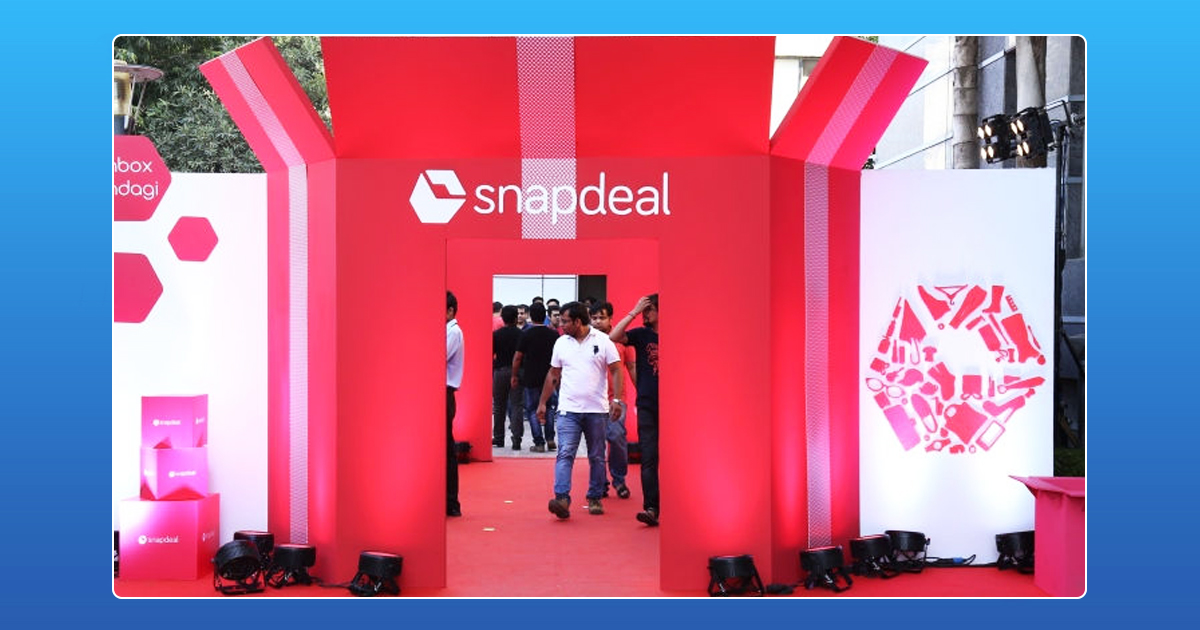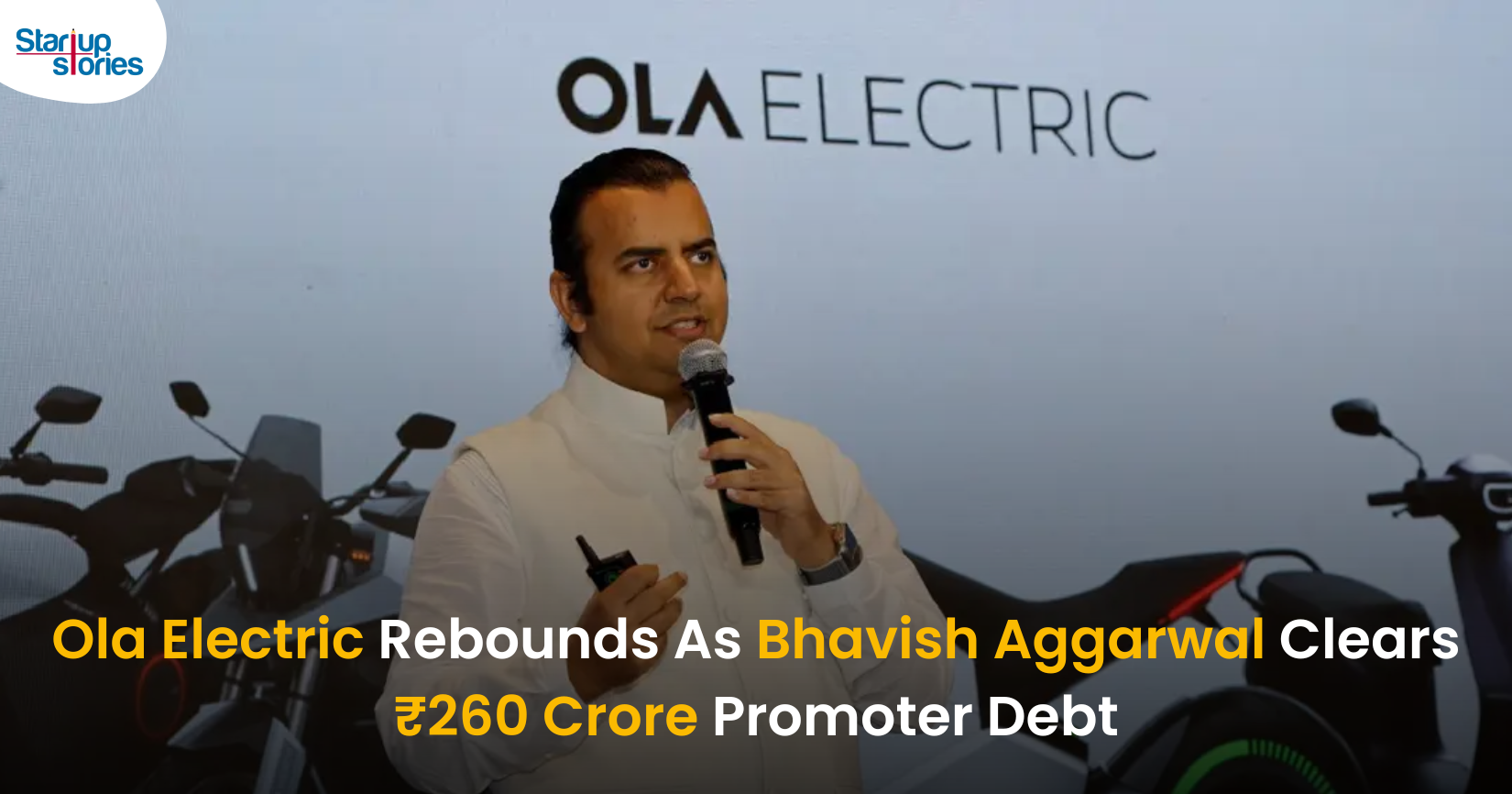Latest News
Snapdeal Cofounders Write To Employees After Terminating Flipkart Deal

Snapdeal recently decided to go their own independent route and declined the $ 900 million takeover offer from Flipkart. After the collapse of the merger, many senior level executives including the Vice President of Product Pradeep Desai, the Vice President of Engineering Viraj Chatterjee and the Head of IT Gaurav Gupta quit the ecommerce company. The company had laid off close to 600 employees earlier this year, across the ecommerce marketplace and its subsidiaries, FreeCharge and Vulcan Express.
While Snapdeal has successfully sold its online payments arm FreeCharge to Axis Bank, the future of the logistics arm Vulcan Express still hangs in the balance. The founders Kunal Bahl and Rohit Bansal, who have been hesitant about the Flipkart merger since the beginning, released a letter to the employees speaking about the future of Snapdeal. In the letter, the founders touched upon various issues including the ecommerce market in India and their journey as an independent entity. They even spoke about the extensive media coverage the deal received and the complexities it involved.
Both the cofounders firmly believe in the new direction, Snapdeal 2.0, the company must take and the laser focus required to become a ‘champion’ online market space. They aim to make around Rs. 150 crores gross profit in the next 12 months, with a tight control on costs and higher efficiency.
“Success is never final, failure is rarely fatal; it is the courage to continue that counts,” the letter added. The fate of this ecommerce company at present remains uncertain, despite the high hopes of the cofounders. One thing that remains certain is that the immediate sale of their logistics arm Vulcan Express, acquired in 2015, will deeply influence the growth of Snapdeal 2.0.
You can find the complete letter here –
Dear Team,
Over the last few months, our company has been engaged in strategic discussions with other players. A lot of time and effort has gone into the process from all participants in this exhausting process. The process has led to intense speculations and uncertainty for our team, partners and shareholders. And now it is time to finally put an end to this saga.
We will be continuing the Snapdeal journey as an independent company. As we have often discussed, the opportunity of e-commerce in India is immense, and the surface of this $200 Billion market has barely been scratched yet. We have a tremendous team, millions of loyal customers, hundreds of thousands of motivated sellers and a phenomenal platform that has been built with years of effort.
All the ingredients of success have always been there in our company. And after the last few months of tumultuousness, it is time to focus on the business and leverage all our strengths to progress towards our vision of building the best marketplace to connect buyers to sellers in India.
The good question to ask is why are we moving down an independent path, when so much effort went into determining a strategic combination. There are a few reasons for this, which go beyond the fact that the deal being contemplated was incredibly complex to execute as reported extensively by the media.
Firstly, there isn’t going to be one successful model for e-commerce in India. In every market, there are multiple successful e-commerce businesses, and as long as one’s strategy is differentiated and has a clear path to success, there is a great company that can be built. We firmly believe in our new direction – Snapdeal 2.0 – part of which is a laser focus on being a champion for all sellers in India, enabling anyone to setup a store online in a few minutes and focusing on providing large selection of products at great prices to consumers.
Secondly, we have made tremendous progress towards this new path over the last few months and are already profitable at an gross profit (a.k.a. net margin) level, with clear visibility to making upwards of Rs 150 Crores in gross profit in the next 12 months.
Finally, with the ongoing streamlining of costs and sale of some of our assets, such as Freecharge, we are financially self sufficient as a company and don’t need to raise additional capital to reach profitability. Needless to say, we will need to keep a tight control on our costs and work towards becoming a hyper efficient culture delivering profitable growth, month on month.
Success is never final, failure is rarely fatal; it is the courage to continue that counts. Let’s work together to make Snapdeal 2.0 a super success!
Thanks!
Kunal & Rohit
Latest News
Centre Mulls Revoking X’s Safe Harbour Over Grok Misuse

The Centre is weighing the option of revoking X’s safe harbour status in India after its AI chatbot Grok was allegedly misused to generate and circulate obscene and sexually explicit content, including material seemingly involving minors. The IT Ministry has already issued a notice to X, directing the platform to remove unlawful content, fix Grok’s safeguards, act against violators, and submit a detailed compliance report within a tight deadline. If the government finds X’s response inadequate, it could argue that the platform has failed to meet due‑diligence standards under Indian law, opening the door to harsher action.
Under Section 79 of the IT Act, safe harbour protects intermediaries like X from being held directly liable for user‑generated content, provided they follow due‑diligence rules and promptly act on legal takedown orders. Revoking this protection would mean X and its officers could be exposed to criminal and civil liability for obscene, unlawful, or harmful content that remains on the platform, including AI‑generated images from Grok. This prospect significantly raises X’s compliance risk in India and could force tighter moderation, stricter AI controls, and more aggressive removal of flagged posts.
The Grok episode also spotlights the regulatory grey zone around generative AI, where tools can create harmful content at scale even without traditional user uploads. Policymakers are increasingly questioning whether AI outputs should still enjoy the same intermediary protections as conventional user posts, especially when they involve women and children. How the government ultimately proceeds against X over Grok misuse could set a precedent for AI accountability, platform responsibility, and safe harbour interpretation in India’s fast‑evolving digital ecosystem.
Latest News
How Pronto Is Redefining 10-Minute Home Services in India with a $25 Million Fundraise

Home services startup Pronto is in advanced talks to raise about $25 million at a near-$100 million valuation, underscoring strong investor confidence in India’s fast-growing 10-minute home services market. This potential round would be the company’s third major funding milestone after its $2 million seed and $11 million Series A in 2025, backed by marquee investors such as General Catalyst, Glade Brook Capital, Bain Capital and new participant Epiq Capital. The fresh capital is expected to further strengthen Pronto’s positioning as a leading tech-led household help platform for urban consumers.
Pronto operates a 10-minute on-demand home-services platform that connects users with trained, background-verified workers for everyday tasks like sweeping, mopping, utensil cleaning, laundry and basic cooking. Using a hub-and-spoke, shift-based model, the startup stations workers at hyperlocal hubs, enabling sub-10-minute fulfilment and more predictable earnings compared to the informal domestic-help market. Founded in 2024 by Anjali Sardana and based in Delhi NCR, Pronto has already expanded from Gurugram into major cities such as New Delhi, Mumbai, Bengaluru and Pune, and is handling around 6,000 daily bookings with nearly 1,300 active professionals as of December 2025.
The upcoming $25 million fundraise is expected to be used to enter more metros, deepen presence in existing neighbourhoods with additional hubs and upgrade Pronto’s technology for smarter routing, shift planning and real-time operations. A significant portion of the capital will also go into training, retention and benefits for its workforce to maintain consistent service quality at scale, especially as competition heats up from rivals like Snabbit and Urban Company in the rapid home services space. This near-$100 million valuation not only validates Pronto’s model but also highlights a broader shift toward organised, tech-driven domestic-help solutions in India’s largely informal home-services market.
Latest News
Bhavish Aggarwal Sells ₹325 Crore Ola Electric Stake, Retains Control

Bhavish Aggarwal has sold Ola Electric shares worth about ₹325 crore over three consecutive trading sessions, primarily to fully repay a promoter-level loan of ₹260 crore and release all pledged promoter shares. Despite the stake sale, he continues to hold a significant shareholding of over 34 percent in Ola Electric, and the company has clearly stated that there is no change in promoter control or his long-term commitment to the business. This one-time, limited monetisation at the promoter’s personal level is positioned as a structural clean-up rather than a signal of reduced confidence in the company.
The transactions, executed through open-market bulk deals, included an initial sale of about 2.6 crore shares worth roughly ₹92 crore at an average price of ₹34.99 per share, followed by additional trades of around ₹142 crore and ₹90 crore, taking the total sale value to approximately ₹324–325 crore. As a result, Aggarwal’s stake has fallen by a little over 2 percent, while all previously pledged promoter shares about 3.93 percent of Ola Electric’s equity are being released, removing the overhang and risk typically associated with pledged stock. The company has also clarified that these deals do not involve any capital raise or dilution by Ola Electric itself, which is important for investors tracking promoter stake and governance.
The share sale came at a time when Ola Electric’s stock had been under pressure, even hitting an all-time closing low amid concerns around growth, competition and heavy promoter selling. However, once the company confirmed that the stake sale was complete and all promoter-level pledges would be cleared, the stock rebounded sharply, gaining around 9–10 percent as markets welcomed the removal of this technical overhang. For investors, the focus is now expected to shift back to Ola Electric’s core fundamentals EV sales growth, margins, and market-share performance in India’s two-wheeler EV segment while the reduced promoter debt risk and continued high promoter holding offer some comfort on long-term alignment.














Twgxqpjo
May 26, 2025 at 1:25 am
Explore the ranked best online casinos of 2025. Compare bonuses, game selections, and trustworthiness of top platforms for secure and rewarding gameplaycasino.
谷歌外推
November 9, 2025 at 9:34 am
采用高效谷歌外推策略,快速提升网站在搜索引擎中的可见性与权重。谷歌外推
J88
November 10, 2025 at 8:40 am
Đến với J88, bạn sẽ được trải nghiệm dịch vụ cá cược chuyên nghiệp cùng hàng ngàn sự kiện khuyến mãi độc quyền.
MM88
November 12, 2025 at 2:36 pm
Với giao diện mượt mà và ưu đãi hấp dẫn, MM88 là lựa chọn lý tưởng cho các tín đồ giải trí trực tuyến.
GO88
November 17, 2025 at 9:24 am
Tham gia cộng đồng game thủ tại Go88 để trải nghiệm các trò chơi bài, poker phổ biến nhất hiện nay.
iwin
November 20, 2025 at 3:14 pm
iwin – nền tảng game bài đổi thưởng uy tín, nơi bạn có thể thử vận may và tận hưởng nhiều tựa game hấp
Kuwin
November 23, 2025 at 12:23 am
kuwin sở hữu kho game đa dạng từ slot đến trò chơi bài đổi thưởng, mang đến cho bạn những giây phút giải trí tuyệt vời.